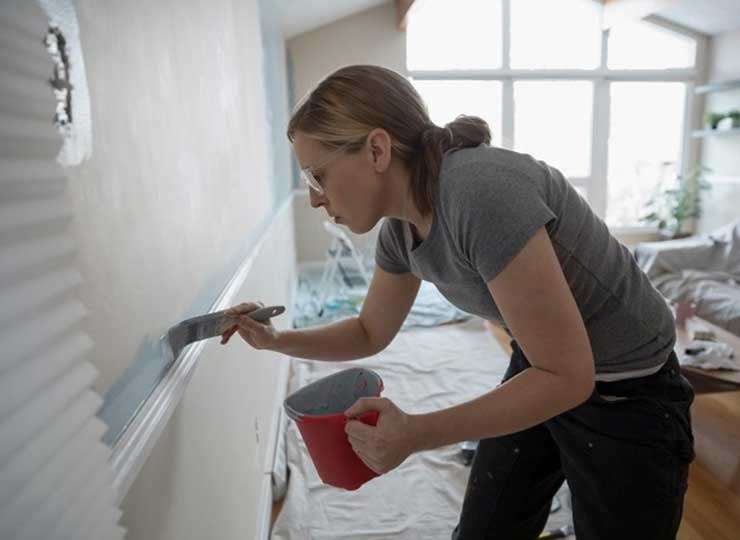The Government’s extension of the Brightline test from five to 10 years has had minimal impact on professional property traders, one of Auckland’s leading auctioneers has claimed.
Traders – who buy houses, renovate them and then flip them for profit – were one of the groups targeted by the Government when it shook up the country’s tax legislation last year.
But Ray White's lead auctioneer in South Auckland says traders in his patch have barely missed a beat; not because they are avoiding paying tax, but because they already pay tax on every property they sell.
Steele, and others spoken to by OneRoof, have questioned the relevancy of the Brightline test, which was brought in by the National Government in 2015 as a way of taxing the financial gains people were making when they bought and sold properties that were not their main residence.
Start your property search
Under the first iteration of the test, the tax came into effect if the property was sold within two years, but it was extended to five years in 2018, then last year the Government extended it again to properties bought and sold within 10 years.
Properties bought as investment rental properties are impacted by the test if they are bought and sold within the time period, but investors say they can get around that by not selling until they are outside the 10 years.
Trading houses and investing are different categories, but some people in the industry do both, sometimes using one to leverage the other.
Steele said traders were out in force in South Auckland last year when the market was hot – they bought, renovated then sold and made strong gains.
But while it's easy to bag traders, Steele said many people don't realise most are GST-registered and already pay their fair share of income tax, often in the highest tax bracket.
“A high percentage of active property investors, or especially traders, have always paid tax and will continue to do so with the Brightline test having very little impact on them,” he said.
“If you have a business where you are making a regular income from property, you obviously have to be GST-registered."
Most traders have a company through which they are able to claim GST back, which makes sense when in the business of doing alterations or enhancing properties, but any time a property is bought in a business entity tax has to be paid when it's sold.
“The majority of investors I've dealt with who own 20 or so rental properties are registered as a company. When they buy a property they have the GST advantage there but when they sell it they still have to pay the tax on it, as you would in a normal business,” he said.

Most professional traders will seek to improve and renovate a property before flipping it. Photo / Getty Images
“We know traders who buy and sell 20, 30, 50 properties a year - they pay tax on every single one of those properties. It's also not uncommon to see a property sold for a loss because the trader has seen a better opportunity somewhere else and wants to free up cash to pursue it.
"A lot of traders buy undesirable houses and improve them to sell on – it's not a job for the faint-hearted and they are rewarded for their risks."
A property trader and investor from the Hawkes Bay, who didn't want to be named, told OneRoof the Brightline test doesn't affect her rental properties because she had no plans to sell them in the short term.
If she were to sell, then she would be impacted, however. But as a property trader, the Brightline test did not apply, she said.
"We pay a whole heap of income tax and then also GST and all that. We buy the house, we claim the GST back on the purchase price and then, yes, if I put a new kitchen in then I claim the GST back on that, and then when I sell the house I pay the GST back on the sale price."
But also when she sells, she pays income tax because the money she makes is from the sale is her income. "For me, it's a small amount of profit because I work in the first home buyer segment. I feel pretty excited if I got a $30,000 profit but I'm more down around the $10,200 profit."
The Brightline test was a way for the Government to try to fix the housing crisis by labelling traders and investors as the main cause of the problem, she said. But the opposite was true.
She buys houses which have usually had deferred maintenance, gets them back up to scratch and they then go back into the housing pool.
She does a lot of the work herself: "It's real hard yakka. We get lumped into one group and there's a whole heap of us who do a truckload of work and work really hard at improving the housing stock to be fair because ultimately that's what we're doing."

NZ Property Investors Federation executive officer Sharon Cullwick thinks the Brightline test will be reduced. Photo / Supplied
She likes the flexibility of the working hours, and also does it because she loves property. "It's amazing to come into a really rough house that's been let go and transform it."
Sharon Cullwick, executive officer of the New Zealand Property Investors Federation, said her main concern about the Brightline test was that instead of selling property, investors will sit on a property for the 10-year period.
That means the property won't be available for development, for example, such as for new townhouses. Having said that, most investors were in property for the long haul anyway, she said.
Cullwick supports the original two-year time frame but is puzzled as to why the Brightline test was extended, saying the Government probably did this simply to show it was doing something around the housing crisis.
The timeframe will likely be reduced again, she thinks.
Of the Federation's members, only a small number both invest and trade houses and Cullwick said the numbers trading had dropped away significantly since the market slowed this year.
















































































